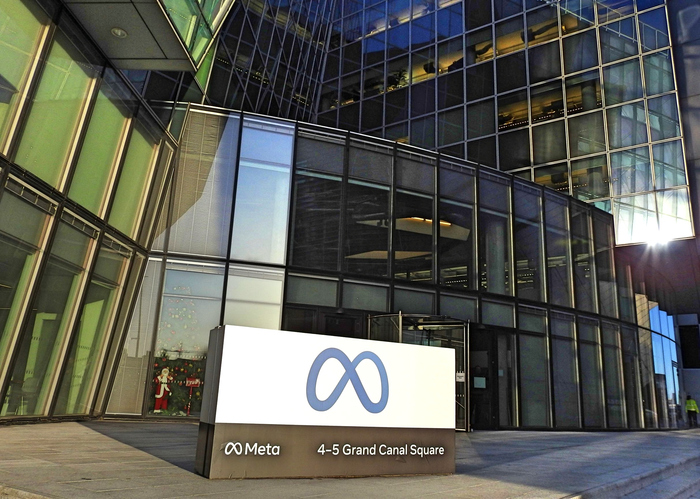How Information Can Lead to a Successful SEC Enforcement Action
Established as part of the Dodd-Frank Act, the program encourages individuals to report possible violations of the federal securities laws to the SEC. As a reward for their contributions to upholding the integrity of the U.S. financial markets, whistleblowers may receive a monetary award if their information leads to a successful enforcement action by the SEC.
May 15, 2025

This information is provided for educational purposes only by Kohn, Kohn & Colapinto and does not constitute legal advice. No attorney-client relationship is created by accessing this content. Laws and regulations may change, and this material may not reflect the most current legal developments. If you believe you have a whistleblower claim, consult a qualified attorney to discuss your specific circumstances.
The Securities and Exchange Commission (SEC) Whistleblower Program is a cornerstone of securities law enforcement in the United States.
Established as part of the Dodd-Frank Wall Street Reform and Consumer Protection Act of 2010, the program encourages individuals to report possible violations of the federal securities laws to the SEC.
As a reward for their contributions to upholding the integrity of the U.S. financial markets, whistleblowers may receive a monetary award if their information leads to a successful enforcement action by the SEC.
In this article, we’ll examine what it means for whistleblower information to “lead to” a successful SEC enforcement action.
We are delighted to announce the addition of former SEC Acting Chair, Allison Herren Lee, to our team, further solidifying our commitment to protecting SEC whistleblowers.
Now Of Counsel at Kohn, Kohn & Colapinto, Allison Herren Lee is ready to serve and protect SEC whistleblowers, and help them seek rewards under the SEC Whistleblower Program. If you’re an SEC whistleblower wanting to report a concern, contact our law firm today to speak confidentially with Allison H. Lee.
The SEC Whistleblower Program: An Overview
Before diving into the specifics, it’s crucial to understand the SEC Whistleblower Program’s basics.
The program is designed to incentivize the reporting of violations of securities laws by offering financial rewards to whistleblowers whose information leads to an enforcement action in which the SEC recovers more than $1 million in sanctions. These rewards can range from 10% to 30% of the money collected in the case.
The SEC Whistleblower Program also includes provisions that protect the identity of whistleblowers and prohibit retaliation by employers against employees who report potential violations.

New Release
Rules for Whistleblowers
Learn more about SEC whistleblowing by reading founding partner Steve Kohn’s latest book, Rules for Whistleblowers: A Handbook for Doing What’s Right.
You can also browse the Law Library for more information on the SEC Whistleblower Program.
See Rule 19: Dodd-Frank (Securities & Commodities): Report to the SEC/CFTC
What Does It Mean for Information to “Lead to” an Enforcement Action?
For a whistleblower to be eligible for an award, their information must “lead to” a successful enforcement action by the SEC. This means the information provided must be sufficiently specific, credible, and timely to cause the SEC to:
- Commence an examination, in situations where the SEC was not previously aware of the potential violation.
- Open or reopen an investigation, if the SEC had not already initiated a probe into the potential violation.
- Inquire about new forms of misconduct, which may be part of an ongoing examination or investigation but was not previously known to the SEC.
Furthermore, the information provided must result in a successful enforcement action in which the SEC obtains monetary sanctions exceeding $1 million.
Key Factors
To better understand this process, let’s break down the key factors that determine if the information provided by a whistleblower “leads to” a successful enforcement action:
- Specificity: The information provided must be concrete and detailed enough to allow the SEC to understand the nature of the potential violation and pursue an enforcement action. General or vague allegations may not meet this standard.
- Credibility: The credibility of the whistleblower and the information they provide is crucial. This includes whether the whistleblower has a reasonable basis for their claims, whether the information can be corroborated, and the overall reliability and accuracy of the information.
- Timeliness: The information must be provided in a timely manner. Delay in reporting can result in diminished value of the information or even make an enforcement action unfeasible due to statutes of limitation or other legal barriers.
- Value of the Information: The information provided must be of high enough value to the SEC’s enforcement efforts. This means it must contribute significantly to the success of the enforcement action. For instance, if the information allows the SEC to obtain evidence it otherwise couldn’t have obtained, it is likely to be considered valuable.
The Whistleblower’s Role in the Enforcement Action
While the whistleblower’s role doesn’t necessarily have to extend beyond providing the initial tip, further involvement can strengthen the case and potentially increase the chances of a successful enforcement action. This might involve providing additional information or documents, assisting in deciphering complex financial transactions, or testifying as a witness in proceedings
Final Word
The SEC Whistleblower Program has been instrumental in uncovering numerous securities law violations, helping to ensure the integrity and fairness of U.S. financial markets. Understanding what it means for a whistleblower’s information to lead to a successful enforcement action is crucial for those considering reporting a potential violation.
By providing specific, credible, and timely information that results in a successful enforcement action with over $1 million in sanctions, whistleblowers have a unique opportunity to contribute to law enforcement efforts and potentially receive a significant financial reward.
Remember, the SEC Whistleblower Program is designed to encourage and protect those who come forward with valuable information about potential securities law violations. If you have such information, consider reaching out to an experienced securities law attorney who can help guide you through the reporting process and ensure your rights are protected
Our Firm’s Cases

Environment & Human Rights Violations Exposed
Oil industry’s environmental crimes and cover-up in Colombia have been exposed. Whistleblower Andrés Olarte Peña, with the support of his attorneys Kohn, Kohn & Colapinto and the damning evidence compiled in the Iguana Papers, is calling for an investigation into Ecopetrol and its executives by the Colombian government and the U.S. Securities and Exchange Commission.

$30 Million Award
Protecting the confidentiality of Wall Street whistleblowers is among the most important breakthroughs in federal whistleblower law. Under the Dodd-Frank Act, whistleblowers can file anonymous cases, and everything about their case, including who they sued, remains secret.

$13.5 Million Award
Our firm represented an anonymous whistleblower, who on May 17, 2021, received a whistleblower award of almost $13.5 million. The SEC has issued more than $31 million in whistleblower awards related to this case.

![Reporting Recordkeeping Failures To The Sec [2025 Guide]](https://kkc.com/wp-content/uploads/2025/01/Recordkeeping-Failures.jpg)




